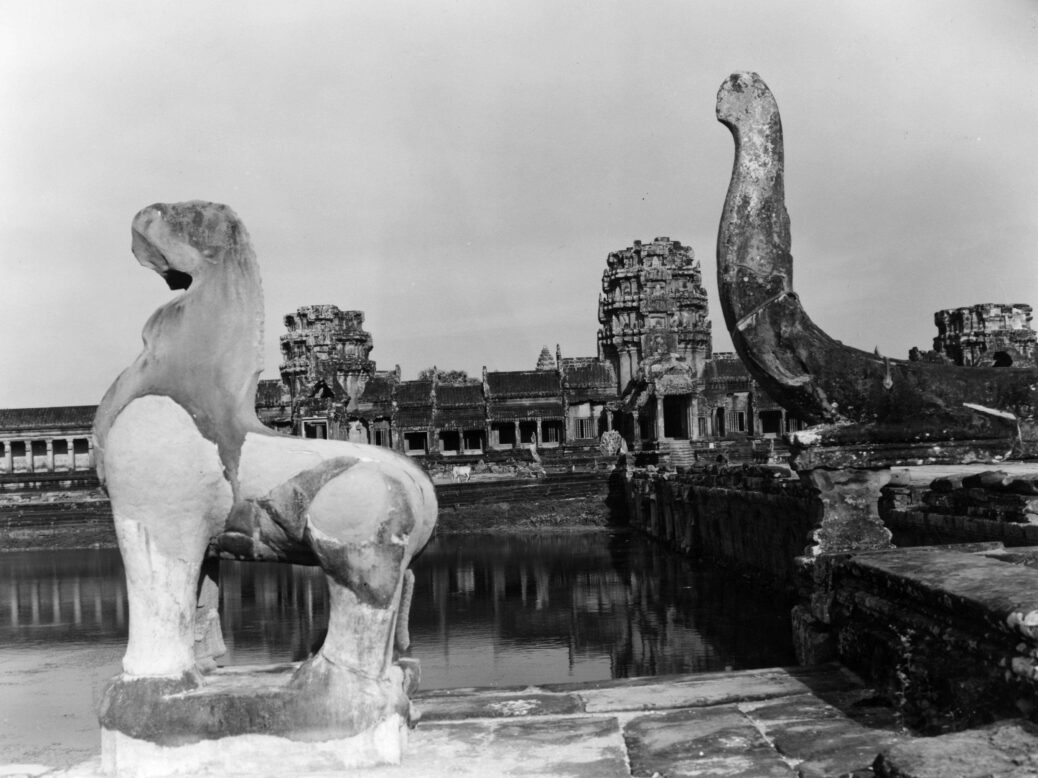
Whenever I meet people who knew Pol Pot before he became Cambodia’s brutal communist dictator, I am puzzled by how much they liked him. For most of his thirties, he worked as a French teacher in Phnom Penh and his students adored him.
How do you explain Pol Pot’s transformation from popular schoolteacher into the man responsible for Cambodia’s 1975-79 genocide, in which as many as two million people died? Keng Vannsak, his former mentor, told me that he believed the revolutionary suffered from a broken heart.
According to Vannsak, in 1949 Pol Pot fell in love with a princess and one-time beauty queen, Son Maly. Around five years later, she left him for Sam Sary, his political rival and the second most powerful man in the kingdom – and Pol Pot gradually lost faith in both romantic love and democracy, devoting his life to revolutionary struggle.
While researching my latest novel, which is set in Phnom Penh in 1955, I wondered what had become of Son Maly. Keng Vannsak had told me that she left for London with Sam Sary (as well as his wife and children), after he was appointed Cambodian ambassador. The pair apparently made tabloid headlines after she escaped from the embassy with her newborn baby and sought asylum, claiming that Sam Sary had whipped her. He was recalled to Phnom Penh and stripped of his privileges. A few years later, he died, most likely killed by his former allies.
I found an article about Sam Sary’s disastrous spell as ambassador in Time magazine, dated 21 July 1958. There is no mention of Son Maly. The piece claims that Sam Sary brought two women from the 1955 Miss Cambodia beauty contest with him: the winner, Tep Kanary, and another competitor, Iv Eng Seng. Iv Eng Seng was the woman who claimed asylum. Changing your name is common in Cambodia, yet when I met Sam Sary’s son, Sam Rainsy, the leader of Cambodia’s opposition party, he denied that Iv Eng Seng had ever been in a beauty contest or been called Son Maly.
So I focused on the other woman, Tep Kanary, and returned to Cambodia. I dug through what remains of the national archives after decades of turmoil and interviewed dozens of people. Finally I found her family’s elegant home outside Phnom Penh. The neighbours remembered her – “What a beauty,” they recalled. But their story did not match Keng Vannsak’s: Tep Kanary wasn’t of royal descent.
I vowed to confront Keng Vannsak with these contradictions. The then 83-year-old scholar was reluctant to receive me, tired of everybody “who wanted things but never gave anything in return”, but he finally agreed to meet me in Paris in the spring of 2009. In December 2008, I read his obituary. We would never meet.
I wrote once more to Sam Rainsy, who replied: “Tep Kanary, whom I know little of, was not a part my father’s household in London.” I had reached a dead end.
Then a small door opened in the wall. I received third-hand information about another woman named “Somaly”, who allegedly accompanied Sam Sary to London. I started asking around and again came up against a barrage of confusing, contradictory information.
I had finished writing my book and given up my quest when finally I was given a phone number for a woman I strongly believed was Son Maly: a 75-year-old real-estate owner in Texas. Yet I already knew, as I slowly dialled
the number, that no one would answer.
“Song For an Approaching Storm” by Peter Fröberg Idling is published by Pushkin Press (£12.99)





